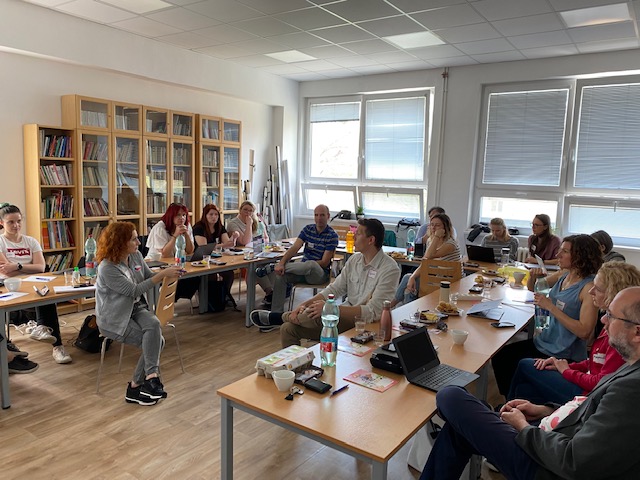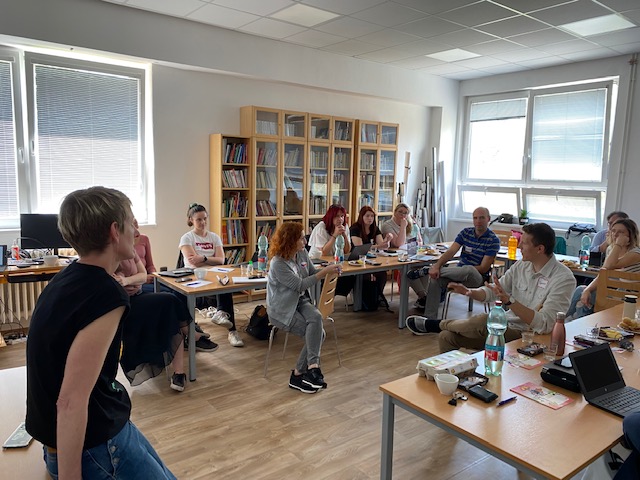
A total of 36 participants are taking part in this project, made up of 6 teachers from each of the 6 partner schools. Thanks to the transnational nature of the project, and the choice of partners within geographic clusters as well as individual schools, we have been able to establish a project structure that reflects three levels of CaRE: within schools, between schools, and online.

The project involves 6 LTTs; 2 in Ireland and 1 in each of the other partner countries. Throughout the project, the partners will develop processes and resources to support their school, within their cluster, and at project level. The theory that will be used to underpin the activities is drawn from research into Communities of Practice, with particular emphasis on the “TeachMeet” approach.
An overarching Theory of Change (ToC) methodology will be employed. This is an innovative and holistic method that can be used to assess the progress of the project in terms of meeting its overarching goals, individual activity aims, and to guide the project participants in evaluating their own progress. Within the ToC framework, qualitative and quantitative indicators will be employed to monitor the progress, quality and achievements of the project and its activities.
By working with schools in a variety of countries and contexts, we hope to develop a robust but flexible set of guidelines and resources. It is expected that this project will have a positive impact at local, regional, national, European and potentially international levels. In fact, the structure of the project will support such impact at each of these levels through the development of CaRE in Schools, CaRE Clusters and CaRE online, with each level growing from and building on the previous. Through the LTTs and development of outputs, our intention is to abstract the fundamental structures and supports required in order to successfully develop CaREs at each of these levels, in order to create resources that can be used to inform other institutions’ development in this way. In addition, the modules and resources developed through the project will support these burgeoning CaRE communities at European/international levels.
Longer-term, we also see potential for the project to have an impact at national levels on teacher initial education and professional development programmes. Our hope is to demonstrate, through rigorous research, the benefit of developing and supporting CaREs in schools, promoting communities of practice and developing critical and reflective practitioners.







